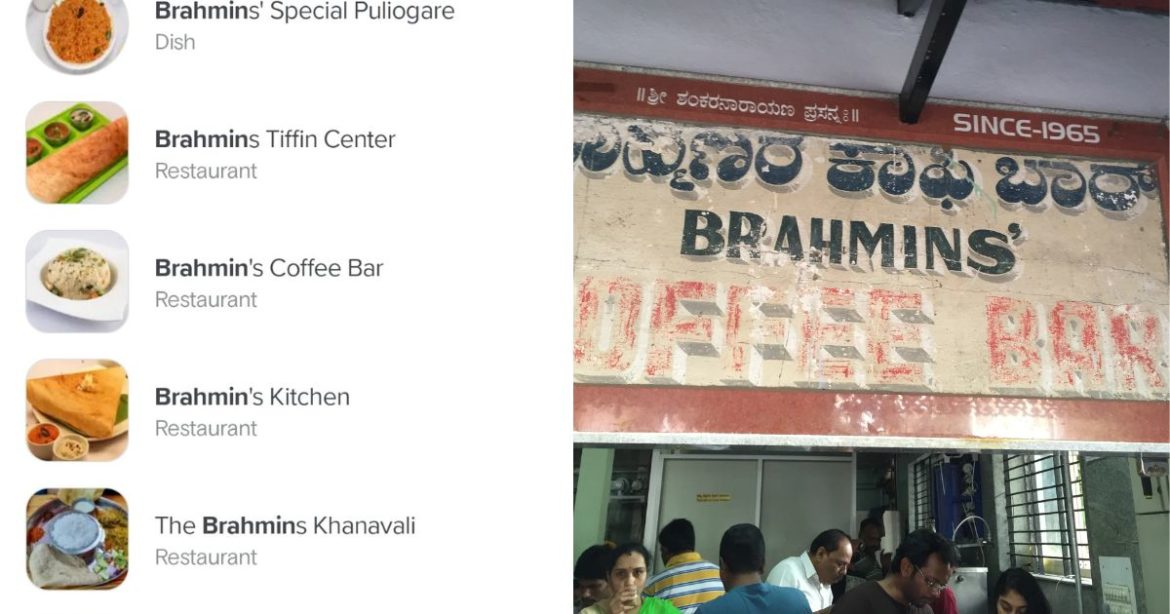


Anuradha Tiwari, the CEO of a Bengaluru-based content writing agency, sparked a heated debate on social media with her post captioned "Brahmin genes." Defending her post, Anuradha argued that upper castes, referred to as UCs, do not benefit from the reservation system and should be able to proudly showcase their lineage. While some users supported her stance, others pointed out the insensitivity of her post and the absurdity of equating Brahmin genes with superiority. This post has reignited the ongoing discussion on casteism and reservation policies in India.
Brahmin Privilege and Casteism in India: A Social Media Debate
Background
Caste, a traditional social hierarchy rooted in ancient Hindu scriptures, continues to play a significant role in Indian society. The caste system divides people into thousands of endogamous groups, each associated with a specific occupation and social status. Brahmins, the priestly caste, have traditionally enjoyed high status and privilege.
In recent years, affirmative action policies known as reservations have been implemented by the Indian government to uplift historically disadvantaged castes. These policies reserve seats for members of Scheduled Castes (SCs), Scheduled Tribes (STs), and Other Backward Classes (OBCs) in education, employment, and government representation.
Anuradha Tiwari's Post
Anuradha Tiwari, the CEO of a Bengaluru-based content writing agency, ignited controversy on social media with a post titled "Brahmin genes." In her post, Tiwari argued that Brahmins should be proud of their lineage and do not benefit from the reservation system.
Reactions and Debate
Tiwari's post sparked a heated debate on social media, with some users supporting her view and others criticizing it for being insensitive and perpetuating casteist stereotypes. The post reignited the ongoing discussion about casteism and reservation policies in India.
FAQs
1. What is the caste system in India?
The caste system is a social hierarchy that categorizes people based on their birth into thousands of endogamous groups. Brahmins, the priestly caste, have traditionally been at the top of the hierarchy.
2. What is the purpose of reservation policies in India?
Affirmative action policies, known as reservations, aim to uplift historically disadvantaged castes by reserving seats for them in education, employment, and government representation.
3. Does Anuradha Tiwari's post reflect the views of all Brahmins?
No. There is a diversity of views within the Brahmin community on the issue of casteism and reservation policies. Some Brahmins support Tiwari's views, while others reject them as outdated and divisive.
4. Is casteism still a problem in India?
Yes. Despite legal and constitutional protections, caste-based discrimination persists in various forms, including discrimination in education, employment, marriage, and social interactions.
5. What can be done to address casteism in India?
Addressing casteism requires a multi-pronged approach that includes education, awareness-raising, legal enforcement, and transformative social policies that promote equality and inclusivity.

Elon Musk's xAI has launched Grokipedia, an AI-powered online encyclopedia to rival Wikipedia. Musk aims for the platform to be a "massive improvement" and free from any political bias. While Grokipedia currently sources content from Wikipedia, Musk plans to have all original content by the end of the year. This development adds to Bihar's political landscape, where leaders like Lalu Prasad and Nitish Kumar have dominated with their OBC politics, while Nitish's developmental narrative has transformed the state's political landscape.

BJP leader Chandrashekhar Bawankule sparked controversy with his statement that party workers' phones and WhatsApp groups are being monitored ahead of local body elections. Shiv Sena leader Sanjay Raut demanded his arrest, alleging that the phones of several Opposition leaders were also tapped. Bawankule clarified his statement, but the Sena leader questioned the involvement of BJP offices and technology networks, calling it a potentially anti-national act.

The Election Commission (EC) has announced the schedule for Special Summary Revision (SIR) of electoral rolls in 12 states and Union Territories (UTs) for the year 2025, excluding Assam due to the ongoing National Register of Citizens (NRC) process. While the BJP has welcomed the announcement, the Congress has raised concerns and questioned the decision. The Chief Election Commissioner (CEC) has stated that Assam has a separate provision in citizenship laws and the NRC process must be taken into consideration, causing potential delays in the SIR preparations. Despite the physical closure of banks in Ranchi and Patna, financial services will remain available through digital and self-service platforms, so customers are advised to use online banking and plan any in-branch visits accordingly.

In a step towards promoting ethical governance and preventing corruption, Chief Secretary Atal Dulloo administered the Integrity Pledge to officers and officials at the Civil Secretariat in Srinagar. This marked the beginning of the National Vigilance Awareness Week, a nationwide campaign held annually by the Central Vigilance Commission. The theme for this year is "Vigilance: Our Shared Responsibility", emphasizing the role of collective efforts in upholding integrity, transparency, and accountability in public administration. Throughout the week, various activities will be conducted to sensitize employees and citizens on the importance of honesty and integrity in governance.

In a bid to promote integrity and fight against corruption, the Central Vigilance Commission has declared the observation of 'Vigilance Awareness Week' with the theme 'Our Shared Responsibility'. Health Minister JP Nadda, during the launch, stressed the need for institutionalizing ethical practices and building a culture of vigilance in every level of governance. He also urged for creating a checklist of do's and don'ts in simple terms to prevent unintentional wrongdoings.

Delhi Environment Minister Manjinder Singh Sirsa chaired a meeting to discuss ways to control dust pollution from construction activities in the city. He revealed that an extensive campaign has been launched to monitor and penalize illegal and unregistered construction projects. The Minister also directed officials to expedite field actions and simplify the registration process to ensure timely intervention against polluters.

In a press conference held in New Delhi, the Election Commission has announced phase two of special intensive revision of electoral rolls in 12 states. This comes after political parties raised concerns about the quality of the rolls. While Tamil Nadu Chief Minister MK Stalin arrived at DMK headquarters to discuss the issue, Assam's electoral roll revision will be announced separately due to the ongoing process of the National Register of Citizens. The EC has assured that there will be no obstacles in implementing the roll clean-up exercise in West Bengal.

President Droupadi Murmu addressed probationers of the Indian Police Service 77 RR (2024 batch) and emphasized the significant role that effective policing and future-ready technology play in promoting growth and attracting investment in any state. She highlighted the transformational impact of technology in the realm of policing and urged young officers to remain ahead in adopting new technologies, including AI, to combat threats to citizens. The President also encouraged ethical decision-making and accountability among young officers occupying positions of power and authority.

CEC Gyanesh Kumar has announced the second phase of the Special Intensive Revision (SIR) of electoral rolls in 12 states and Union Territories, covering 51 crore voters. He also addressed concerns over the state of West Bengal, clarifying that there is no confrontation between the Election Commission and the state government. Additionally, he reminded that Aadhaar card is not proof of citizenship, but can be used as identity proof in the SIR process.

After Chief Justice Gavai's formal recommendation, Union Government is set to appoint Justice Surya Kant as the next Chief Justice of India. With a distinguished legal career and key institutional roles, Justice Kant is highly regarded for his commitment to electoral transparency and landmark verdicts on various issues including abrogation of Article 370 and free speech. His term is expected to begin on November 24, 2025, and last for approximately 15 months.